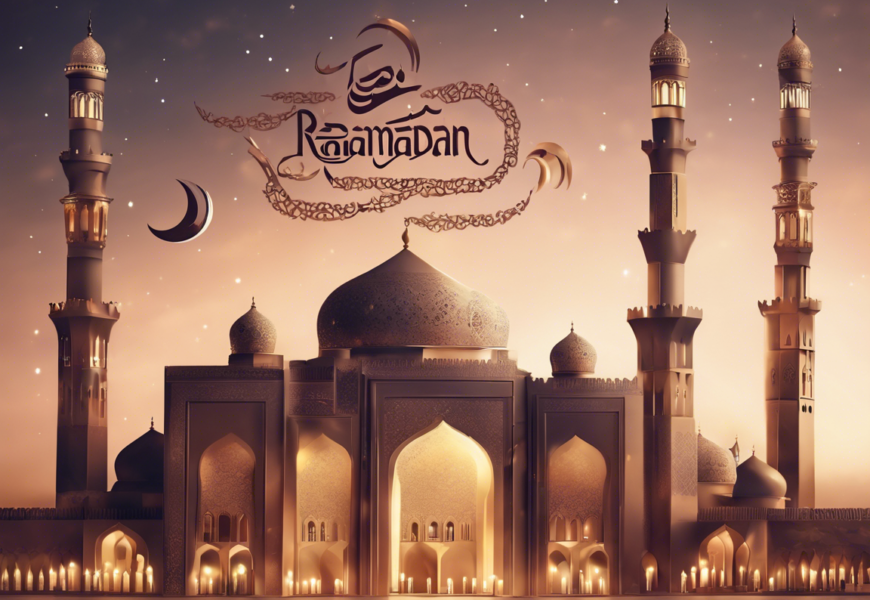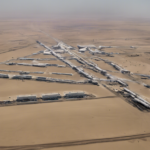Ramadan 2023: A Time for Reflection, Connection, and Renewal
As the holy month of Ramadan approaches, Muslims around the world are gearing up to embark on a spiritual journey filled with self-reflection, prayer, fasting, and community. Ramadan is a month of intense devotion, where individuals strive to strengthen their relationship with Allah, seek forgiveness, and improve themselves both spiritually and morally. The month-long observance is not only a time of fasting from dawn till dusk but also a period of heightened spirituality, charity, and inner peace.
The Significance of Ramadan
Ramadan is the ninth month of the Islamic lunar calendar and holds great significance for Muslims worldwide. It is during this month that the Quran, the holy book of Islam, was revealed to the Prophet Muhammad. As such, Ramadan is a time of heightened spiritual reflection, devotion, and worship. Fasting during this month is one of the Five Pillars of Islam and is obligatory for all adult Muslims, with exceptions for the elderly, pregnant women, nursing mothers, travelers, and individuals with health conditions.
The Fasting Ritual
Fasting during Ramadan is not just about abstaining from food and drink; it is a test of patience, self-discipline, and empathy. Muslims fast from dawn until sunset, refraining from consuming food, liquids, smoking, and engaging in marital relations. The pre-dawn meal, known as Suhoor, is consumed before the Fajr prayer, and the fast is broken at sunset with the Iftar meal, usually with dates and water followed by a larger meal.
Spiritual Reflection and Connection
Ramadan is a time for Muslims to engage in introspection, seeking forgiveness for past sins and striving to better themselves in the eyes of Allah. It is a month of heightened spirituality, with increased prayers, recitation of the Quran, and acts of charity. Muslims are encouraged to perform Taraweeh prayers at night, which are additional prayers recited during Ramadan. The Night of Power (Laylat al-Qadr) is considered the holiest night of the year, and it is believed that prayers offered on this night are especially powerful.
Community and Charity
Ramadan is also a time for community bonding and acts of charity. Muslims are encouraged to strengthen their ties with family, friends, and neighbors, as well as reaching out to those in need. Zakat, the giving of alms to the poor and needy, is one of the Five Pillars of Islam, and many Muslims choose to give additional charity during Ramadan. It is believed that charitable acts during this month are rewarded manifold, and giving to those less fortunate is a way to purify one’s wealth and soul.
Healthy Practices During Ramadan
While fasting is a central aspect of Ramadan, it is important for individuals to take care of their health during this month. It is crucial to consume nutritious meals during Suhoor and Iftar to ensure that the body receives an adequate amount of nutrients. It is also recommended to engage in light to moderate physical activity to maintain overall health and well-being. Hydration is key, so be sure to drink plenty of water during non-fasting hours to prevent dehydration.
Tips for Making the Most of Ramadan
-
Start with Intention (Niyyah): Begin each day with a sincere intention to fast for the sake of Allah and to make the most of the blessed month of Ramadan.
-
Engage in Acts of Worship: In addition to fasting, try to increase your acts of worship, such as prayer, recitation of the Quran, and supplication.
-
Practice Gratitude: Take time each day to reflect on your blessings and express gratitude to Allah for all that you have.
-
Focus on Self-Improvement: Use Ramadan as an opportunity to work on self-improvement, whether it’s through breaking bad habits, cultivating good ones, or seeking forgiveness.
-
Give Charity: As a form of purification and compassion, give generously to those in need during Ramadan.
Frequently Asked Questions (FAQs) about Ramadan
-
Is it mandatory for all Muslims to fast during Ramadan?
Fasting during Ramadan is obligatory for all adult Muslims who are physically able to do so. Exceptions are made for individuals such as the elderly, pregnant women, nursing mothers, travelers, and those with health conditions. -
What is the significance of the Suhoor meal?
The Suhoor meal is consumed before dawn and is intended to provide sustenance during the fasting hours. It is recommended to eat a nutritious meal during Suhoor to help maintain energy levels throughout the day. -
Can one brush their teeth while fasting?
It is permissible to brush one’s teeth while fasting as long as care is taken not to swallow water. Using a miswak (a teeth-cleaning twig) is also a recommended practice during Ramadan. -
What is the Night of Power (Laylat al-Qadr)?
The Night of Power, also known as Laylat al-Qadr, occurs during the last ten nights of Ramadan and is believed to be the night when the Quran was first revealed to the Prophet Muhammad. It is considered the holiest night of the year. -
How can one make the most of Taraweeh prayers?
To maximize the benefit of Taraweeh prayers, try to focus on concentration and sincerity in your worship. Recite the Quran with understanding, reflect on its meaning, and strive to connect deeply with Allah during these special prayers. -
What are the benefits of giving charity during Ramadan?
Giving charity during Ramadan is highly encouraged as it helps purify one’s wealth, brings blessings, and provides relief to those in need. It is believed that charitable acts during this month are particularly rewarding. -
How can one maintain a healthy diet during Ramadan?
To maintain a healthy diet during Ramadan, focus on eating balanced meals that include complex carbohydrates, protein, fruits, and vegetables. Avoid excessive consumption of fried and sugary foods, and stay hydrated by drinking plenty of water between Iftar and Suhoor. -
What are the spiritual benefits of Ramadan?
Ramadan offers numerous spiritual benefits, including increased closeness to Allah, inner peace, self-discipline, and heightened awareness of one’s actions. It is a time for reflection, repentance, and spiritual growth. -
How can one seek forgiveness during Ramadan?
Seeking forgiveness during Ramadan involves sincere repentance, making amends for past wrongdoings, seeking Allah’s mercy, and asking for forgiveness through prayers and supplications. It is a time to reflect on one’s actions and strive to be a better person. -
What is Eid al-Fitr and how is it celebrated?
Eid al-Fitr is the festival that marks the end of Ramadan, where Muslims celebrate the completion of a month of fasting with prayers, feasting, and gathering with family and friends. It is a time of joy, gratitude, and giving thanks to Allah for the strength to observe Ramadan.
In conclusion, Ramadan is a sacred and transformative month for Muslims worldwide, offering a unique opportunity for spiritual reflection, connection with Allah, and renewal of faith. By observing the rituals of fasting, prayer, charity, and self-improvement, individuals can deepen their spirituality, strengthen their bonds with the community, and seek closeness to the Divine. May this Ramadan be a time of blessings, growth, and enlightenment for all those observing it.




